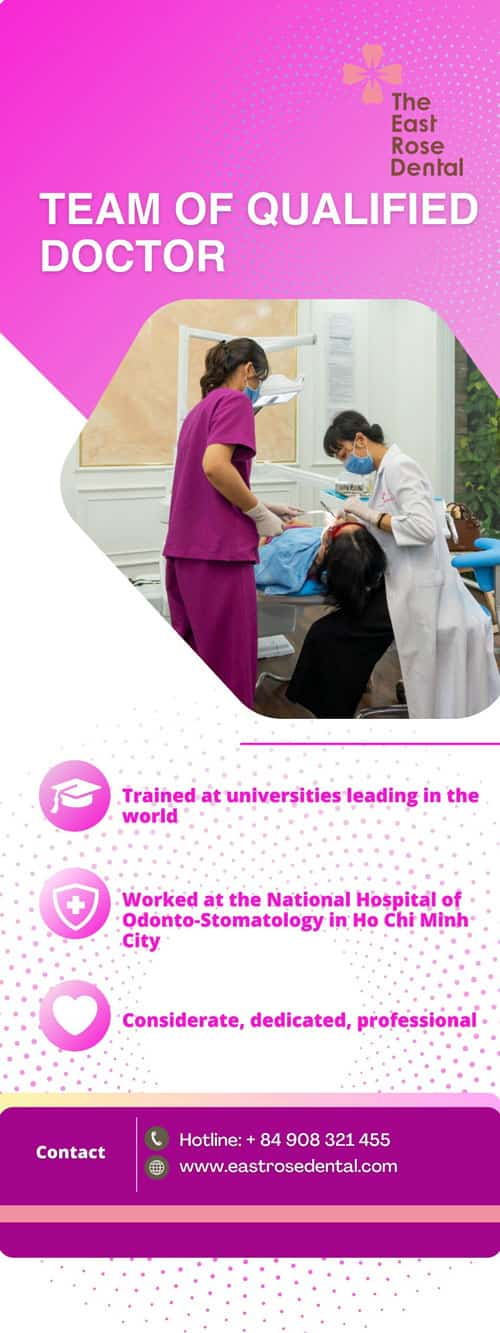Finding the truth: Are dental crowns actually harmful?
Whether or not dental crowns do more harm than good is a rather popular concern among people who are new to this dental cosmetic procedure due to anxiety and the fear of long-term impacts on their teeth.
Many people choose dental crowns to improve problems such as chipped or cracked teeth, uneven tooth color, and weakened teeth following root canal. However, concerns about whether it hurts to get dental crowns or whether dental crowns do harm make them reluctant to visit a dental clinic. After all, the answer to this question depends upon many different factors.
Do dental crowns cause harm?

Dental crowns are completely harmless if you receive the procedure in a reliable dental clinic with a team of highly-qualified dentists and excellent customer service in an advanced, sterile setting.
If the dental clinic lacks any of these factors, you’ll be likely to experience complications that require a revision procedure or even affect your health, such as:
- The crowns fall out as a result of improper teeth crowning
- Catching a dangerous infectious condition such as fungal infection, herpes, and hepatitis B due to improperly pasteurized medical tools
- If your dentist takes inaccurate impressions of your teeth, your crowned teeth will look unsightly, such as being raised, ill-fitting, or even worse, misaligned bite, etc.
- Damage to the filed teeth is inevitable if the original teeth are overdone by the dentist or if they secure the crowns into the wrong places, resulting in loose teeth, which allows bacteria to build up and cause harm.
Safety factors when crowning
-
Dentist's skills: Whether a dental crown is effective or not depends very much on the professional level of the dentist. If the dentist is poorly trained, the abrasion of the teeth will affect the pillar and weaken the health of the teeth. Moreover, you need to thoroughly treat previous oral diseases such as tooth decay, tooth infection,... to ensure oral health after porcelain crowning. Therefore, choosing a good dental clinic is very important.
- Type of porcelain teeth: All-porcelain crown has both the inner and outer layers made of porcelain. Therefore, teeth have not only natural colors but also good enduring capacity, and are completely safe for the body. In contrast, some types of metal porcelain teeth can cause allergies or irritation of the gums.
Who are not eligible for dental crowns?
A different way to answer whether dental crowns are harmful or not is to determine if you are the right candidate for this form of cosmetic procedure.
Dental crowns are not the right option for you if you:
- Usually skip brushing or brush only once a day
- Have a habit of biting nails, chewing on hard foods, clenching teeth when under stress or during sleep, and using your teeth to open bottles or tools, etc.
- Smoke excessively (from 10-20 cigarettes per day) as cigarette smoke will destroy the porcelain enamel
- Have too weak teeth and gums that are susceptible to swelling and bleeding after dental crowning
- Are prone to dental and gingival disease. If you decide to go with the procedure anyway, cavities may develop inside of your new teeth, requiring you to remove dental crowns.
Dental crowning aftercare
After the procedure, make sure to take good care of your teeth to prolong their durability and good appearance as well as to limit damage and tooth decay with these simple tips:
- Visit your dentist at least once every 6 months to check for any signs of problems
- Use a mouthguard to avoid nighttime teeth grinding
- Avoid biting on hard things such as candies, ice cubes, rough foods (such as bones, crab shells, and dried grains, to name a few) or using teeth to open wrappings or objects
- Take extra care to clean the area where your teeth and gums meet while brushing
- Brush your teeth at least twice a day with a soft-bristled toothbrush and use dental floss after every meal to prevent tooth decay by keeping food particles and plaque from sticking to the tooth roots and adjacent teeth, which may damage your teeth.
When to replace dental crowns?
Your crowns can last for a long time with proper, frequent oral hygiene and monitoring. However, in some cases, your dentist may recommend replacing your crowns if any of the problems below arises:
- Your crowns have gotten loose
- Chipped or cracked crowns
- The crowns are almost separated from the core teeth
- The core teeth develop cavities that require treatment
- Severely dental erosion due to teeth grinding, biting, and chewing over a long time
- The gum tissues surrounding your dental crowns are worn out, resulting in dark spots along the gum line.
Hopefully, the information provided above could give you some insights into whether dental crowns cause harm. If you plan on receiving this treatment, take your time to learn about different dental clinics, their services as well as the costs to achieve the wanted outcomes.
Learn more:
Reference source
Services
Working Time
- Monday - Friday: 08:00 - 19:00
- Saturday: 08:00 - 18:00
- Sunday closed
Contact Info
- Hotline 1: (+84) 908 321 455
- Hotline 2: (+84) 931 857 885
- Mobile: (+84) 8 3925 8778
- Phone: (+84)2 838 258 778
- info@dentalrose.net
- rosedentalclinicvn@gmail.com
 English
English  Tiếng Việt
Tiếng Việt

